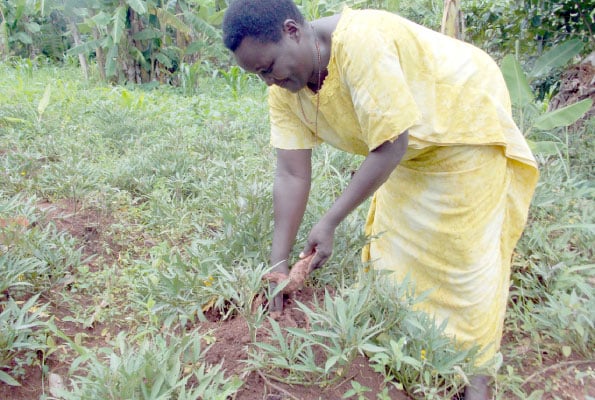Prime
Involve everyone in malnutrition fight

Peter Eceru
What you need to know:
- Malnutrition hampers a child’s intellectual potential during the crucial period of development from conception to the first two years of life.
Countries commemorate World Nutrition Day on May 28 annually to highlight the importance of nutrition.
The National Development Plan (NDP) places a high priority on developing human capital to drive economic growth. Policymakers believe that improving education and cognitive achievement will result in increased productivity and gross domestic growth.
Uganda Vision 2040 also recognises the importance of investing in nutrition to ensure a high standard of living for its population.
Under NDP III, the Ugandan government acknowledges that achieving demographic dividend is crucial for economic growth and social development.
By investing in ending malnutrition, not only can Uganda accelerate its economic growth but it can also improve the lives of its people.
Malnutrition has long-term negative consequences, such as decreased brain development, weaker cognitive skills, and lower educational attainment, especially for malnourished children and mothers of childbearing age.
Malnutrition hampers a child’s intellectual potential during the crucial period of development from conception to the first two years of life.
Uganda faces several nutritional challenges, including maternal iodine deficiency, low birth weight, stunting, and anaemia.
Despite being known as the food basket of East Africa, Uganda consistently grapples with multiple forms of malnutrition.
According to the 2022 Uganda Demographic and Health Survey, 24.4 percent of children under five years old are stunted, over 3.2 percent are wasted, 9.7 percent are underweight, and 3.4 percent are overweight. Additionally, more than 53 percent of women of reproductive age in Uganda suffer from anaemia. This situation has implications on quality of human capital, education outcomes, and healthcare costs for women, children and infants.
According to the World Health Organisation, malnutrition remains a major global and national health concern. It impacts cognitive development, physical work capacity, and school performance, leading to reduced productivity, socio-economic growth, and development. Among school-going children, malnutrition can negatively affect cognitive and motor development, resulting in decreased learning capacity and poor school attendance.
Moreover, it weakens the immune system, making children more susceptible to infections.
This is particularly evident in Uganda, where the population relies heavily on staple foods, resulting in a high prevalence of stunted children in the southwest region, which is the country’s main food producer. It is important to note that malnourished children have a higher mortality and morbidity rate, as they are prone to respiratory infections and diarrhoea.
Women’s access to nutritious food is disproportionately affected by national and transnational crises. For instance, the crises in Karamoja and refugee hosting districts push millions of mothers and children into hunger and severe malnutrition.
Expectant mothers face even greater challenges, as diets lacking key nutrients can lead to complications like anaemia, pre-eclampsia, haemorrhage, and death.
Haemorrhage alone accounts for 41 percent of maternal deaths in Uganda. Furthermore, poor nutrition during breastfeeding makes it difficult for mothers to replenish their nutrient stores and meet the additional dietary needs of breastfeeding.
Pregnant adolescent girls are more likely to suffer from malnutrition and its associated medical challenges than older women. These include fetal complications such as low birth weight, perinatal mortality, congenital defects, abortion, and urinary infections.
To effectively combat malnutrition, the government needs to implement policies and enforce mandatory legal measures aimed at expanding the large-scale fortification of commonly consumed foods, such as flour, cooking oil, and salt. This approach will contribute to the reduction of micronutrient deficiencies and anaemia in girls and women.
Peter Eceru works at Action Against Hunger.
[email protected]




